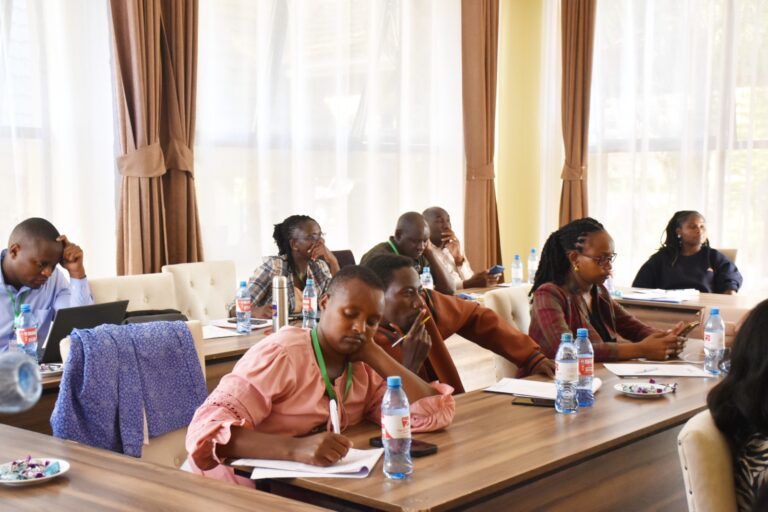INTERNATIONAL TRAINING ON CARBON FINANCE
BACKGROUND
In the evolving global effort to combat climate change, carbon finance has become a powerful enabler for achieving emission reduction targets and promoting sustainable development. Carbon finance encompasses the financial tools, market mechanisms, and investment strategies that incentivize organizations, governments, and individuals to reduce greenhouse gas (GHG) emissions. It serves as a bridge between environmental responsibility and financial opportunity, offering pathways for aligning economic growth with climate action.
Today, carbon pricing, carbon markets (both compliance and voluntary), carbon offsetting, and innovative climate investment products are reshaping the landscape of business strategy and public policy. As climate commitments such as the Paris Agreement drive deeper cuts in emissions, the need for professionals who understand the complexities of carbon finance has never been greater.
This course, developed by the Environmental Capacities and Sustainability Institute (ECAS), provides a hands-on, real-world-oriented exploration of carbon finance concepts. Participants will learn about the structure and function of carbon markets, methodologies for developing carbon projects, valuation and trading of carbon credits, and the broader economic and policy frameworks that support a low-carbon future. Through case studies, simulations, and practical exercises, learners will build the technical and strategic capabilities needed to navigate carbon markets and design finance strategies that contribute meaningfully to both organizational goals and global climate objectives.
OBJECTIVES OF THE TRAINING
By the end of this course, participants will be able to:
- Understand the key concepts, drivers, and mechanisms behind carbon finance.
- Analyze the structure and function of compliance and voluntary carbon markets.
- Evaluate carbon offset projects and credits in terms of quality, risk, and return.
- Develop strategies for participating in carbon trading and offsetting initiatives.
- Navigate international and national carbon regulations and standards.
- Integrate carbon finance into broader organizational sustainability and investment strategies.
- Identify emerging trends, opportunities, and challenges in carbon finance globally.
WHAT YOU WILL LEARN
In this course, participants will gain critical insights and practical skills that will enable them to leverage carbon finance tools for climate mitigation and sustainable growth. Participants will:
- Learn the fundamentals of greenhouse gas accounting and its connection to carbon markets.
- Understand how carbon pricing mechanisms (e.g., taxes, trading schemes) work and impact businesses.
- Gain practical knowledge of carbon offset project development, including verification and certification.
- Analyze carbon credit markets — supply, demand, pricing trends, and risk factors.
- Explore the financial instruments used to fund carbon reduction initiatives.
- Develop investment strategies aligned with climate goals and carbon market opportunities.
- Understand how companies incorporate carbon finance into ESG (Environmental, Social, and Governance) reporting and compliance frameworks.
DURATION AND PROGRAM
TARGET PARTICIPANTS
This course is designed for a broad range of professionals working at the intersection of climate action, finance, and sustainability. It is particularly suited for sustainability managers, environmental consultants, and climate strategists who aim to integrate carbon finance mechanisms into their organizational or project strategies. Finance professionals, investors, and asset managers seeking to understand and capitalize on climate-aligned investments will benefit from the technical and market insights provided. Additionally, policymakers, regulatory officials, and legal advisors involved in carbon pricing, emissions trading, or climate policy development will find the course highly relevant. Corporate social responsibility (CSR) and ESG practitioners looking to enhance their carbon disclosure and reporting frameworks are also well-suited participants. Furthermore, project developers implementing carbon offset or emission reduction initiatives, as well as academics, researchers, and students specializing in environmental economics or sustainable finance, will gain valuable tools and perspectives to advance their work. Whether participants are newcomers or experienced practitioners, the course offers rich, actionable knowledge for navigating the evolving carbon finance landscape.
TRAINING STYLE
The modules will be taught through PowerPoint presentations, and lectures and will include a case study/field visit, breakout sessions, case studies and other interactive discussion components.
The course will also include a few guest speakers, both in person and via Zoom and other online learning platforms for overseas speakers. This provides useful real-world insights alongside the more theoretical aspects of the course.
The conference faculty shall consist of experienced decision makers, as well as practitioners and representatives from established educational and research institutions active around climate change, engineering and international development. Throughout the course, theoretical presentation of concepts will be moderated and more group discussions and plenary engagements will be optimized. PowerPoint presentations will be made by facilitators and resource persons, to highlight key concepts before embarking on group work.
TRAINING MODULES
| No | Module | Details | |
| 1. | Introduction to Carbon Markets and Carbon Finance |
The key objectives include:
|
|
| 2. | Mechanisms and Instruments in Carbon Finance |
The key objectives include:
|
|
| 3. | Project Development and Carbon Asset Creation |
The key objectives include:
|
|
| 4. | Pricing, Risks, and Valuation in Carbon Finance |
The key objectives include:
|
|
|
5.
|
Policy, Regulation, and Compliance |
Key objectives include:
|
|
| 6. | Future Trends in Carbon Finance |
Key objectives include:
|
|
9. GENERAL NOTES
- Training manuals and additional reference materials are provided to the participants.
- Upon successful completion of this course, participants will be issued with a certificate.
- We can also do this as a tailor-made course to meet organization-wide needs. Contact us to find out more: info@ecasiafrica.org.
- Payment should be sent to our bank account before the start of training and proof of payment sent to: info@ecasiafrica.org.
ABOUT ECAS INSTITUTE
The ECAS Institute designs and delivers independent and targeted training, research, and consulting services. Our work focusses on climate change and resilience building, carbon markets, renewable energy, nature-based solution, biodiversity conservation, agriculture and food systems, We are located in Nairobi Kenya and work across the African region. We have implemented training and research assignments in Kenya, Tanzania, Uganda, South Sudan, Somalia, Malawi, Rwanda, Congo, and South Africa. Globally, we have supported our partners from the UK, Denmark, Italy, Sweden, Germany, and USA.

